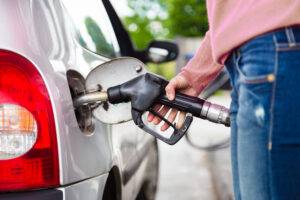The RAC has called for the scrapping of the 5p fuel duty cut, claiming motorists are not benefiting as intended.
Introduced in 2022 to ease the cost of living crisis, the cut costs the Treasury £2 billion annually but has failed to translate into savings at the pumps for drivers. The motoring group accused fuel retailers of pocketing the relief, leading to record-high profit margins of 13p per litre on unleaded and 15p on diesel, compared to pre-pandemic margins of 8p.
Simon Williams, head of policy at the RAC, criticised the biggest retailers for keeping prices high, stating: “The biggest retailers’ refusal not to reduce their prices to fairer levels is continuing to cost drivers dear, and it’s all the more outrageous when you factor in the fact we’re all meant to be benefitting from a temporary 5p cut in fuel duty.”
The cut was introduced by then-Chancellor Rishi Sunak in response to soaring fuel prices following Russia’s invasion of Ukraine, designed to save motorists 6p per litre once VAT was included. However, sharp increases in the wholesale price of oil quickly negated these savings. Although wholesale prices have since fallen significantly, retail profit margins remain high, suggesting that drivers are still not seeing the intended benefits of the duty reduction.
Fuel duty currently accounts for 52.95p of the cost of a litre of fuel, down from 57.95p before the cut, which has been frozen since 2011. Williams argues that the chancellor should reverse the cut in October’s budget, raising the duty back to 58p per litre, highlighting that the 5p reduction is costing the government billions while drivers are overcharged. According to the Competition and Markets Authority (CMA), motorists were overcharged by £1.6 billion last year due to inflated margins.
“We’d normally be against any increase in duty, but we’ve long been saying drivers haven’t been benefitting from the current discount due to much higher-than-average retailer margins,” Williams added. The RAC is urging retailers to adjust their prices to reflect lower wholesale costs, advocating for average petrol prices to drop from 142p per litre to 136p, and diesel from 147p to 139p.
However, the Petrol Retailers’ Association has disputed these claims. Executive director Gordon Balmer argued that the RAC’s focus on historical margins fails to consider the increasing costs faced by retailers, including rising interest rates, energy prices, crime, and labour costs.
Further analysis by the AA revealed that while fuel prices have generally decreased over the summer, motorway service stations have been slow to adjust, keeping prices high. Luke Bosdet, the AA’s spokesperson on pump prices, criticised motorway service areas for their consistently high charges: “Pump prices at motorway service areas continue the tradition of being almost completely uncompetitive — the consistency of exorbitant prices up and down the major network is breath-taking.”
The CMA’s pump price transparency scheme, which is set to move from a voluntary to a statutory scheme, is expected to shed light on fuel pricing practices and potentially offer more competitive options for long-distance drivers. However, whether it will prompt significant changes at motorway service areas remains uncertain.
As the debate continues, the RAC’s call to scrap the fuel duty cut puts pressure on the government to reassess the effectiveness of the measure, amid growing frustration that the intended savings are not reaching drivers.
Read more:
Scrap 5p fuel duty cut as drivers miss out on savings, says RAC

